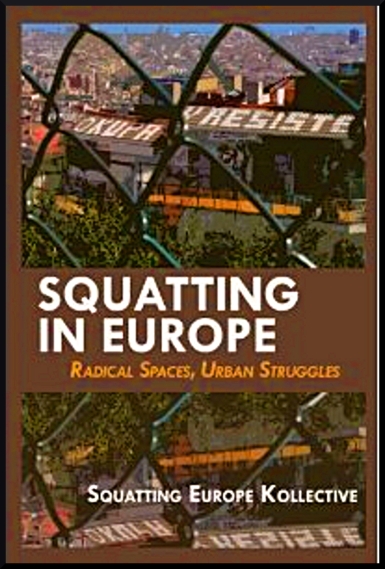
Squatting offers a radical but simple solution to the crises of
housing, homelessness, and the lack of social space that mark
contemporary society: occupying empty buildings and rebuilding lives and
communities in the process. Squatting has a long and complex history,
interwoven with the changing and contested nature of urban politics over
the last forty years.
Squatting can be an individual strategy for shelter or a collective
experiment in communal living. Squatted and self-managed social centres
have contributed to the renewal of urban struggles across Europe and
intersect with larger political projects. However, not all squatters
share the same goals, resources, backgrounds or desire for visibility.
Squatting in Europe aims to move beyond the conventional
understandings of squatting, investigating its history in Europe over
the past four decades. Historical comparisons and analysis blend
together in these inquiries into squatting in the Netherlands, Italy,
Spain, France, Germany and England. In it members of SqEK (Squatting
Europe Kollective) explore the diverse, radical, and often controversial
nature of squatting as a form of militant research and self-managed
knowledge production.
Essays by Miguel Martínez, Gianni Piazza, Hans Pruijt, Pierpaolo
Mudu, Claudio Cattaneo, Andre Holm, Armin Kuhn, Linus Owens, Florence
Bouillon, Thomas Aguilera, and ETC Dee.
“Amidst the proliferation of post-political banter, it is refreshing
to see the time-tested politics of pre-figurative direct action being
taking so seriously. This is a must-read for anybody who wants to
better understand how the politics of squatting offer a set of
transformative strategies for a creating a more egalitarian world.
Furthermore, this collection illustrates how such transformative
politics so often start in the world’s cities through deliberate
organizing and thoughtful reflection by committed groups of activists,
scholars and everyday citizens.” – Nik Heynen, University of Georgia
“In an era of austerity, capitalist accumulation by dispossession,
and the criminalization of protest this excellent book serves as an
inspiring and timely reminder of people’s re-appropriation of urban
spaces in order to fashion alternatives to the status quo. Structured
around a typology of squatting configurations – as anti-deprivation;
entrepreneurial; conservational; political; and alternative housing
strategies – this empirically-rich collection of essays by scholars and
activists provides persuasive evidence of the creativity and politically
transformative potential involved in such practices.” – Paul Routledge,
University of Glasgow

No hay comentarios:
Publicar un comentario